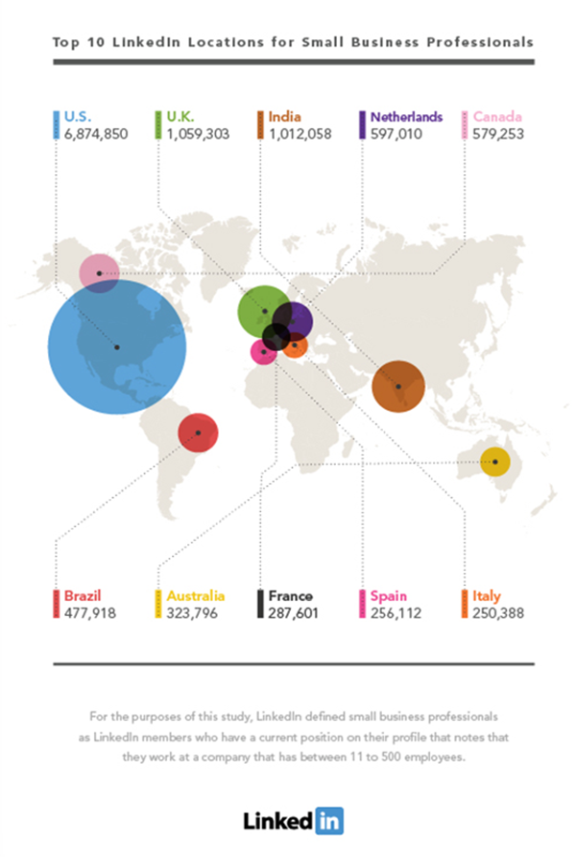This is a guest post by Danny Wong.
When social media started getting popular with businesses, there was a lot of excitement from consumers because they could now interact with companies on a more personal level rather than dealing with companies just like another transaction. Businesses could now show some personality rather than hiding behind a computer and a fixed script. While social media has evolved into a lot of other things, such as a great marketing tactic, an amazing customer service tool, and even helps with content sharing and discovering, it’s maintained many of its important values which make it seem a lot like any great friendship.
You Give
Whether you’re sharing a tweet or posting a status update on your Facebook page, you’re almost always giving. You give advice, tips and experiences by sharing a thought, information by sharing a link, and ultimately value if you’re sharing while keeping your community in mind. Like all great friendships, you make sure to give often, which serves as one of those more pleasant reminders that you’re still friends, and that your friends have great reasons to still love you. As a business, this means when you’re updating your social media accounts, you’re not doing it for selfish reasons, but because you truly want to provide for your community, giving them something of value that they will appreciate and be thankful for. Then they will associate more good feelings with you.

You Take
All great relationships are reciprocal to some extent, so while you give (and hopefully as generously as possible), you also take because you want your friends to know that they are useful to you and that you do need them to survive. You will occasionally ask them for favors like taking a survey for you and having them share great things with their friends. While no one is keeping tabs of who helped who the most, you do make sure to call in some important favors every once in a while, but not so frequently that you’re being a pest — just enough to let them know their worth to you. For businesses, this is as simple as sending out a survey to your fans and followers, crowdsourcing feedback for ways you can improve your business, asking their feedback on what you’ve been thinking about doing to the business and perhaps publishing a fun poll to gauge their interests, thereby letting you know a little more about them. You’re also making an effort to encourage your communities to share things about you and your business to their networks, extending your reach beyond your first degree connections. But you have to beware of overkill. You don’t want to take from your community too much or they’ll feel abused, so make sure you’re actually giving more than you’re taking, and that you’re never taking too much at one time.
You Listen and Act
Your friends will always reach out with advice if they know what’s good for you, and as a good friend yourself, you should make sure to listen very carefully to the things they’re talking about, jotting down their thoughts and concerns, then being proactive and actually doing something to improve yourself, taking their words to heart rather than brushing them off. Your friends are going out of their way to share their thoughts with you on how to improve, so don’t let them walk away frustrated when you don’t listen and continue on as if no one said anything. Everyone likes to know that they’re heard and that they aren’t shouting to a brick wall. As a good friend and a great business, you want to make sure you’re absorbing each thought your followers have for you and that you are constantly working to better yourself according to their feedback, properly addressing their concerns.
You Get Into Fights
You’re not always going to get along with all of your friends. One day you guys might have issues, but it’ll be important to talk them out. Instead of letting the transgression be just another “falling out,” you should be the bigger person and apologize for being wrong, and then work towards mending the wounds. As a business, if you fail to meet a customer’s expectations, it’s your responsibility to salvage that relationship. You have to own up to your failures in that relationship and do whatever it takes to win them back through outstanding customer service by responding quickly and effectively, possibly providing a refund, resending the right product, or the other number of things you can do to show them that they’re actually a winner in this situation and that you’re giving it your all to make sure you’re still friends.

You Get Personal
Instead of making your interactions almost like quick transactions, you should make sure that every interaction is natural, unscripted, and genuine. It’s less about the routine, but more about the ongoing relationship. So instead of just letting the customer purchase and you fulfilling the product and calling it a day, become proactive and be sure to follow up about their experience with you and how you could better serve them next time. Heck, those interactions might end up leading to tangents about why they bought your product, who recommended it, ideas for use of the product, or even ideas for what to do next weekend. Don’t be afraid to let the interactions take you into a personal relationship, and you shouldn’t just walk away from a conversation when it’s starting to get good.
Great friendships have their ups and downs, their giving and taking. But a lot of what goes into a good friendship is just about acting naturally and thinking about your friends more than yourself, maintaining the relationship, being genuine, and knowing when to admit you’re wrong. Businesses need to apply more natural feelings and reactions to social media in order to be successful because having a careful and calculated social media strategy devoid of emotion is just like having a script for every time you meet with your friend. It’s unnatural and it’s ugly. Beautiful friendships are the ones that have only the best intentions acting in the most genuine manner, which is how social media for businesses should be handled.
Danny Wong is the social media maniac for BL Group, which powers the startups Blank Label, Thread Tradition and RE:custom. He’s also a blogger for HuffingtonPost, TheNextWeb and ReadWriteWeb.




Social media is a virtual friendship. I always believe that social media should be used to give personality to a brand and build relationships with other people. I like how you explain the dynamic relationship as not being “perfect” rather it is a real relationship; not everything is like apple pie. But the bumps that are smoothed out will make the relationship even stronger with the consumer. Nice article.
Proof that ‘social media’ is the same old communication values we have had since the cavemen – we just have fancier walls to write on 😉
Nice post.
Great post! Social media is like a great friendship. Well, friends have disagreement and they usually make up. But friends always take and give constructive criticism.
Great post – Its amazing how quickly marketing is evolving.
Great stuff danny. I like social media because you can make great friendship.
Great post… I really agree with this post with a doubt… I agree with you Nan… Friendship should always be for both ways… Nice article…
Great post! I totally agree with this one without any doubts!
I also agree with Nan, friendship should always be a take and give relationship… Nice article, I loved it…
Nice read! Good analogies – a nice way to explain the commitment to Social Media to people not familiar with it. Thank you!!
Very nice article. Social Media is all about friendship and building healthy relationship. While most of the marketers have automated their Social Media efforts now a days, a positive participation over various Social Media avenues can make a real difference. Thanks for sharing Tamar.
http://www.facebook.com/vizzmedia
http://twitter.com/vizzmedia
Totally agree. It’s where everything and nothing happens, actually. You see all sorts of people here and all kinds of interactions. It’s so fun to just stay back and observe sometimes.
Yes True. There are so may factors that makes it a place for friends to share their likes and dislikes. Here many friendships are created as well. A friend of myne in India found her solemate from Germany through Social Media as well